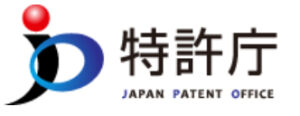Outline of Article 3.1 of the Trademark Law
Trademark rights are to be acquired only for trademarks that are used for goods or services related to one's own business (Trademark Law, Article 3.1, Pillar).
Trademarks are first-to-file (first-to-file), and it is inconvenient if a trademark right is acquired for goods and services that are not used.
The use of the trademark may be planned for use.
* You may plan to use the trademark, but if you do not use the trademark for 3 years or more after the trademark right is issued and a trial for cancellation of non-use is requested, the trademark right will be revoked. ..
Examination Criteria for Article 3.1 of the Trademark Law
The examination criteria for Article 3.1 of the Trademark Law are listed below.
1. 1. About "own business"
"Own business" includes the business of the applicant himself / herself and the business of a person who is substantially found to be under the control of the applicant.
(example)
(1) Business of a joint-stock company in which the applicant has a majority of the voting rights of its total shareholders
(2) Business of the company when the requirements of (1) are not met but there is a capital tie-up and the business activities of the company are virtually under the control of the applicant.
③ Business of franchisees when the applicant is a franchisor in a franchise agreement
2. 2. About "Trademarks to be used"
(1) "Use" means that a person who is substantially recognized as being under the control of the applicant or the applicant for the designated goods or designated services (hereinafter referred to as "applicant, etc.") shall use the trademark of the application. Intention to use the applied trademark not only when it is actually used but also in the future (hereinafter referred to as "intention to use")
Say. ) Is included.。
(2) Reasons for refusal to determine that the designated service does not fall under the trademark that can be registered under the pillars of this section because it is highly probable that the trademark cannot be used in the following cases, for example. Notify and confirm whether the applicant can perform the designated service.
(example)
When it is obligatory to have national qualifications, etc. stipulated by law in order to perform the work related to the designated service, the applicant can perform the work related to the designated service from the name of the applicant stated in the application. When it is not possible to confirm that it is a corporation that can do it, or that it has the national qualifications, etc. as an individual.
Criteria for notifying the reason for refusal of violation of Article 3.1 of the Trademark Law
Then, by what criteria does the JPO notify the reasons for refusal to violate Article 3.1 of the Trademark Law?
(1) When services that require qualifications or licenses are designated as unqualified or unlicensed
Example) When a person who does not have a license for financial business applies for a trademark for services related to financial business, or when a person who does not have a lawyer qualification applies for a trademark for services related to legal business.
(2) When a large number of designated goods or designated services are designated (similar groups are 23 or more in one category)
The Trademark Examination Handbook 41.100.03 states as follows.
As a general rule, when goods or services that span 23 or more similar group codes (hereinafter referred to as "similar groups") are specified in one category, the designation of goods or services covers a wide range. Assuming that there is doubt about the use and intention to use the trademark for the designated goods or designated services, the use or intention to use the trademark will be confirmed.
Previously, when there were 8 or more similar groups in one category, the reason for refusal to violate Article 3.1 of the Trademark Law was notified, but due to the revision of the Trademark Examination Handbook in 2018, one category Among them, the standard was relaxed when the number of similar groups was 23 or more.
However, the counting method for similar groups has changed.
Products and services that are currently counted as one and have multiple similar groups are now counted instead of one.
23 or more is just the number of similar groups, not the number of designated goods / services.
Even if 50 designated services are listed, if the total number of similar group types assigned to the 50 designated services is 22 or less, the reason for refusal to violate Article 3.1 of the Trademark Law will not be notified. ..
(3) In the following cases, "general retail services" is designated and certificates, etc. regarding the use or intention to use the trademark have not been submitted from the beginning of the application.
① When an individual applies for "general retail services"②Even if an ex officio investigation is conducted as to whether or not the product or service related to its own business is used even if it is designated by a corporation, the applicant is performing general retail services, etc. If not recognized
③ When multiple retail services that are not in a similar relationship have been specified
In order not to violate Article 3.1 of the Trademark Law
(1) Do not specify services that require qualifications or licenses even though they are unqualified or unlicensed.
(2) Keep similar groups within 22 in one category
(3) When designating "general retail services," certificates, etc. regarding the use or intention to use the trademark must be submitted at the time of application.










